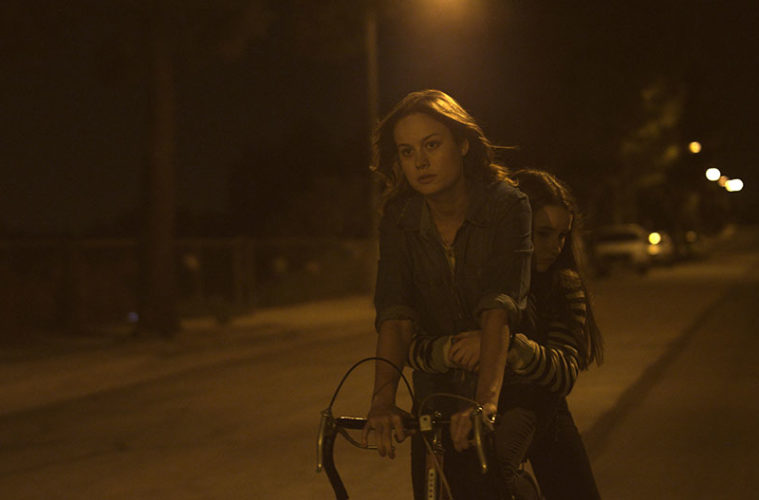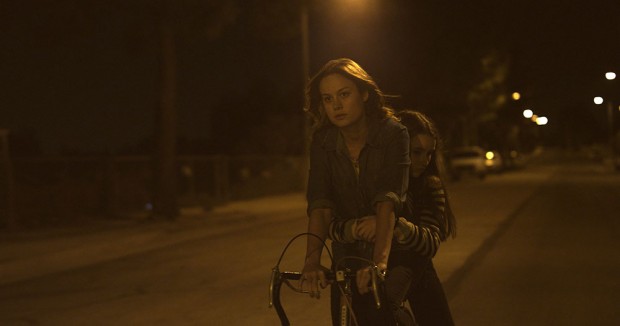
Closing out our year-end coverage is individual top ten lists from a variety of The Film Stage contributors, leading up to a cumulative best-of rundown. Make sure to follow all of our coverage here and see Nathan Bartlebaugh’s favorite films of the year below.
At first glance, 2013 doesn’t stand out as a stunning year for film. Certainly at the multiplexes, the trend of rehashed franchises and half-baked genre exercises continued to clutter a landscape that offered little original or exciting. What set 2013 apart was not any new emerging style or movement, but rather, something far more elusive and precious; compassion. For the first time in many years, there was a great outpouring of film that focused on the human condition in ways that made empathy, understanding and forgiveness traits to be cherished, celebrated and utilized as an active part of our film-going experience. I can’t recall the last time this happened in such a big way.
For every big ticket studio tent pole that landed with a thud, there were small, challenging and exuberant films like The Spectacular Now, All Is Lost or Mud that stuck in the memory and captivated the heart. Master filmmakers like Martin Scorsese and Hayao Miyazaki—delivering his last animated feature with The Wind Rises—found new ways to delight and surprise us one more time. New faces like Ryan Coogler and Saudi Arabia’s Haifaa al-Mansour burst onto the scene with work so honest, confident and appealing that one might assume they were veterans of the craft. Even at the blockbuster level, it was hard to argue with the escapism offered by Alfonso Cuaron’s Gravity and Francis Lawrence’s Catching Fire.
Yes, it was a year that was filled with treasures large and small, and the output was so good that it would have been just as difficult to whittle this list down to 25 great films as it was for 10. In fact, each of these top ten entries could really be considered a tie for the number one spot, and each feels destined to be the kind of film I’ll return to over and over again as the years go by.
Honorable Mentions:

10. Blancanieves (Pablo Berger)
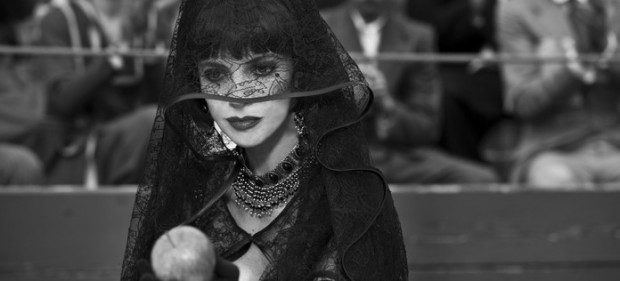
Pablo Berger’s Blancanieves may be a silent film in form and function, but the delivery method is more than a fashionable gimmick. Berger adorns his bewitching black and white fairy tale with the kind of alluring, direct poetry that cinematic descendants Luis Bunuel and Jean Cocteau specialized in and the result is a fantasy masterpiece as transporting as their best. Spain may take over for enchanted English forests, Snow White has become a matador, her stepmother a withering dominatrix, and the dwarves diminutive circus bullfighters but the mystery and magic of the original tale is magnified here in a true feast for the senses. If you’ve tired of contrived big-budget wonder, seek out Blancanieves and watch it cast its formidable spell.
9. The Act of Killing (Joshua Oppenheimer and Anonymous)
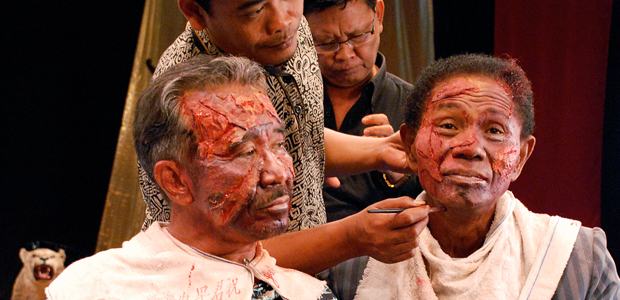
No film on this list affected me more on an emotional level than The Act of Killing, and to call what Joshua Oppenheimer has concocted here a documentary is a severely limiting generalization. Confronting evil in a true form shorn of its sensational cinematic mask is no easy task, and revealing it to itself more difficult than even that. It’s a genuine surprise that when Oppenheimer approaches these mass murdering cinephiles—members of the 1960’s Indonesian death squads—and asks them to talk about their brutal crimes, they enthusiastically agree. Most fascinating is that The Act of Killing isn’t staged as a reckoning upon which these men confess atrocities. Instead, they gleefully reenact their past crimes in the style of the films they love—westerns, musicals, gangster flicks—and we watch them as they are presented, face to face, with the reality of their own inhumanity.
8. The Hunt (Thomas Vinterberg)
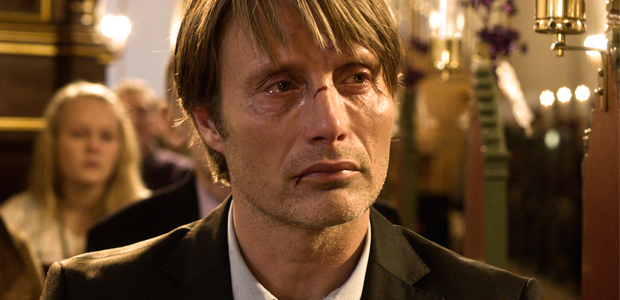
Thomas Vinterberg aims an inquisitive arrow straight at the heart of our cherished conceits of community with this riveting tale of unassuming school teacher Lucas (Mads Mikkelsen), who finds his friends and neighbors turning against him thanks to a child’s obvious lie. Masterfully conceived as one man’s internal struggle with an entire town’s shunning of him, The Hunt avoids exploitation or rote sermonizing and delivers a simple, thrilling drama that inspires us to look more closely at our personal notions of truth and civility. Mikkelsen, not to be forgotten, is the magnetic center of The Hunt, the unmovable, heart-breaking foundation around which all its intriguing notions orbit.
7. Inside Llewyn Davis (Joel and Ethan Coen)
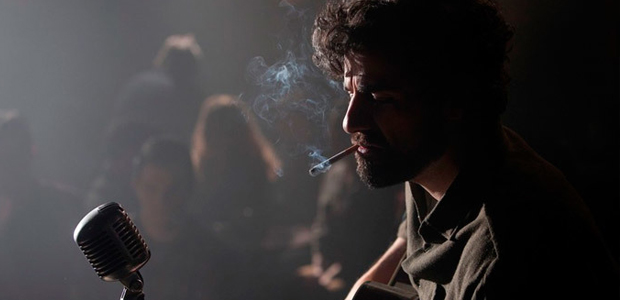
At first glance, Inside Llewyn Davis looks like a mix tape sampler of the Coen bros. greatest hits; another folk music collaboration with T Bone Burnett, one more quirky road trip with John Goodman, yet another tale of a frustrated dreamer jilted on the road to success. Underneath all that is an understated and yearning testament to how ephemeral and exhausting the artist’s quest to retain their integrity can be. Oscar Isaac evokes an unforgettable Coen character in Llewyn; arrogant, pretentious, just aware enough to suspect he might not be all he imagines, he’s more endearing for his very human flaws than any virtues he might possess. What transforms this from a very good Coen outing into one more of their considerable gems is that melancholic sense of impermanence that haunts each frame, recognizable to anyone who ever created something and wanted to protect it.
6. 12 Years A Slave (Steve McQueen)
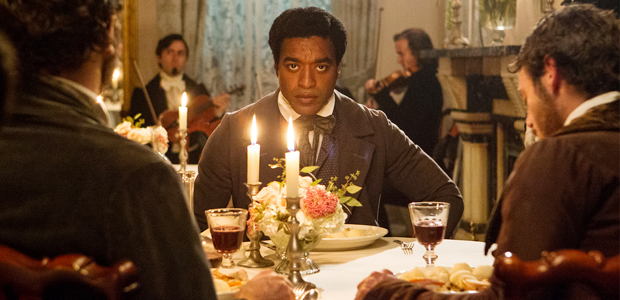
If you thought there was nothing else to be said on a movie screen about America’s history of slavery, then you owe it to yourself to see Steve McQueen’s 12 Years A Slave, the finest narrative film to ever be made about the subject. The aesthetic details are immaculate and rich, but all that accumulated rigor pales in comparison to just how human and nakedly honest the film itself is. There’s great compassion imparted in Chiwetel Ejofor’s performance as Solomon Northup, deep, soul-aching sadness in relative newcomer Lupita Nyong’o’s Patsey, and a tumultuous rot implied by Michael Fassbender’s brutish slave owner. Never indulgent or melodramatic, McQueen’s greatest contribution is his focus on the moral decay at the very heart of slavery as an institution, one not lessened by “good” slave owners or benign practices, but characterized by its ravaging effect on the souls of the oppressed.
5. Upstream Color (Shane Carruth)
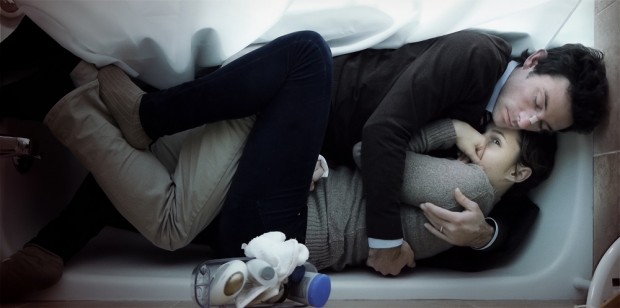
Shane Carruth’s Primer was an intellectual puzzle of a sci-fi movie, and the kind of cult item that left fans anxiously awaiting his follow-up. When that sophomore film is nearly a decade in arriving, it helps when it’s as great as this understated existential fantasy. If his first picture identified Carruth as a filmmaker intrigued by convolution and cinematic trick-taking, Color proves there’s a mature and thoughtful artist emerging from that cocoon. While Primer was unrelentingly clever, Upstream approaches wisdom and tender intelligence, forcing the emphasis from its pseudo technical mythologies to the interior worlds of its characters. As visually wondrous and cumulatively thoughtful as Andrei Tarkovsky’s Solaris—achieving similar results in half the running time—Upstream Color may well be the real calling card of Carruth’s imaginative genius.
4. Short Term 12 (Destin Cretton)
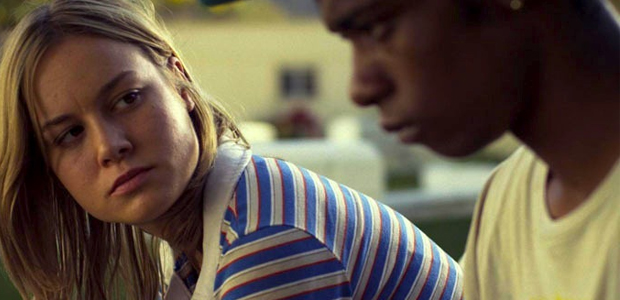
There are two bookend moments in Destin Cretton’s Short Term 12 that highlight this warm yet hard-hitting indie drama’s immense appeal. In both, John Gallagher’s shaggy, likable Mason is regaling his fellow foster home workers with colorful anecdotes from his tenure, each sunny myth interrupted by the reality of the job. Cretton, once a foster care worker, has much of Mason in him, illuminating the power of what a shared hug, hand on the shoulder, or simple impromptu birthday card may do for those who feel rudderless and alone. For all of that, he’s also got a quality that Mason, and his pregnant girlfriend Grace (Brie Larson), the real focus of Term, learn along the way; that the harsh reality of life is just as integral to our journey’s meaning as the brighter moments. Term is filled with brilliant performances, undeniable truths and an unwavering—and yes, brave—belief that there’s boldness in optimism and sophistication in unconditional kindness.
3. Before Midnight (Richard Linklater)
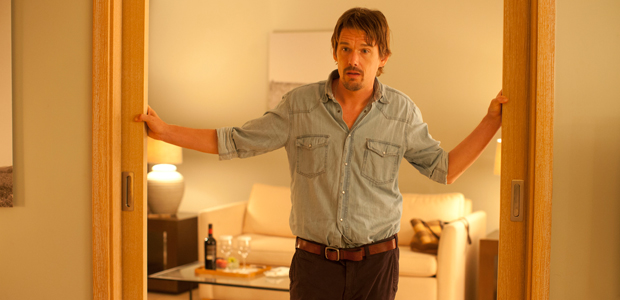
One of the most fascinating aspects of Richard Linklater’s Before series is the way in which it has become a kind of emotional signpost for those following along. I’ve watched my life grow in different and surprising ways since Jesse and Celine first got on that train together, and certainly my trajectory hasn’t always been exactly what I planned. How refreshing to find a pair of cinema characters who are also in the midst of change, and who behave so organically and naturally that we can see much of ourselves reflected in them—in their finer qualities, their selfish and shallow moments, and in their uncertainty for the future. Masterful direction and acting have resulted in a film that feels more found than constructed, but the immediate passion onscreen, even over the course of a heated debate, urges one to leave technical considerations at the door and go along for what is easily the most engrossing feature film of 2013.
2. Wadjda (Haifaa al-Mansour)

Haifaa al-Mansour’s Wadjda is a small miracle of a film. The first Saudi Arabian feature directed by a woman, it’s a humorous but tremendously moving story, both universal in its larger themes and microcosmic when it comes to observing the lives of females within the male-dominated culture. The subversion is subtle, excluding the men from its inner circle of characters, while focusing on one of the community’s youngest, Wadjda, a little girl whose big act of rebellion is that she wants to buy and ride a bicycle. At first glance, the observational style of the film recalls fables like Bicycle Thieves and the Iranian gem Children of Heaven, but Mansour rises to the occasion of her film and makes it stand on its own as a sensitive and joyful portrait of these women. She shepherds an amazing child performance from Waad Mohammed, and through breathtaking compositions, generously turns the camera towards her female brethren, letting their lives speak for themselves.
1. Her (Spike Jonze)

I expected a lot of things from Spike Jonze’s quirky tale of an emotionally vulnerable man dating his computer, but what I wasn’t prepared for was just how gently accurate it is when dealing with the reality of human relationships, both on small, personal levels and at larger social ones too. Without ever really stopping to explain exactly how this near future operates, or what the parameters of its technology actually are, we are dropped into Theodore’s (Joaquin Phoenix) life and made to feel the loneliness and vulnerability while expressing our own wonder at new wrinkles in this reality. Phoenix gives one of his finest and sure to be most underrated performances as a guy who is trying to recover from a broken heart while learning that he’s not nearly as connected to others as he expected. Awards or no, Scarlett Johansson is astonishing in what she accomplishes with only voice-work. Samantha, the operating system that nabs Theo’s heart, is an original and compelling creation and Jonze does her justice by structuring his film around the various evolving stages of her awareness. This is a brilliant and complex tale about the future of our technology, a spiritual exploration about what makes us tick as humans in the act of being.

